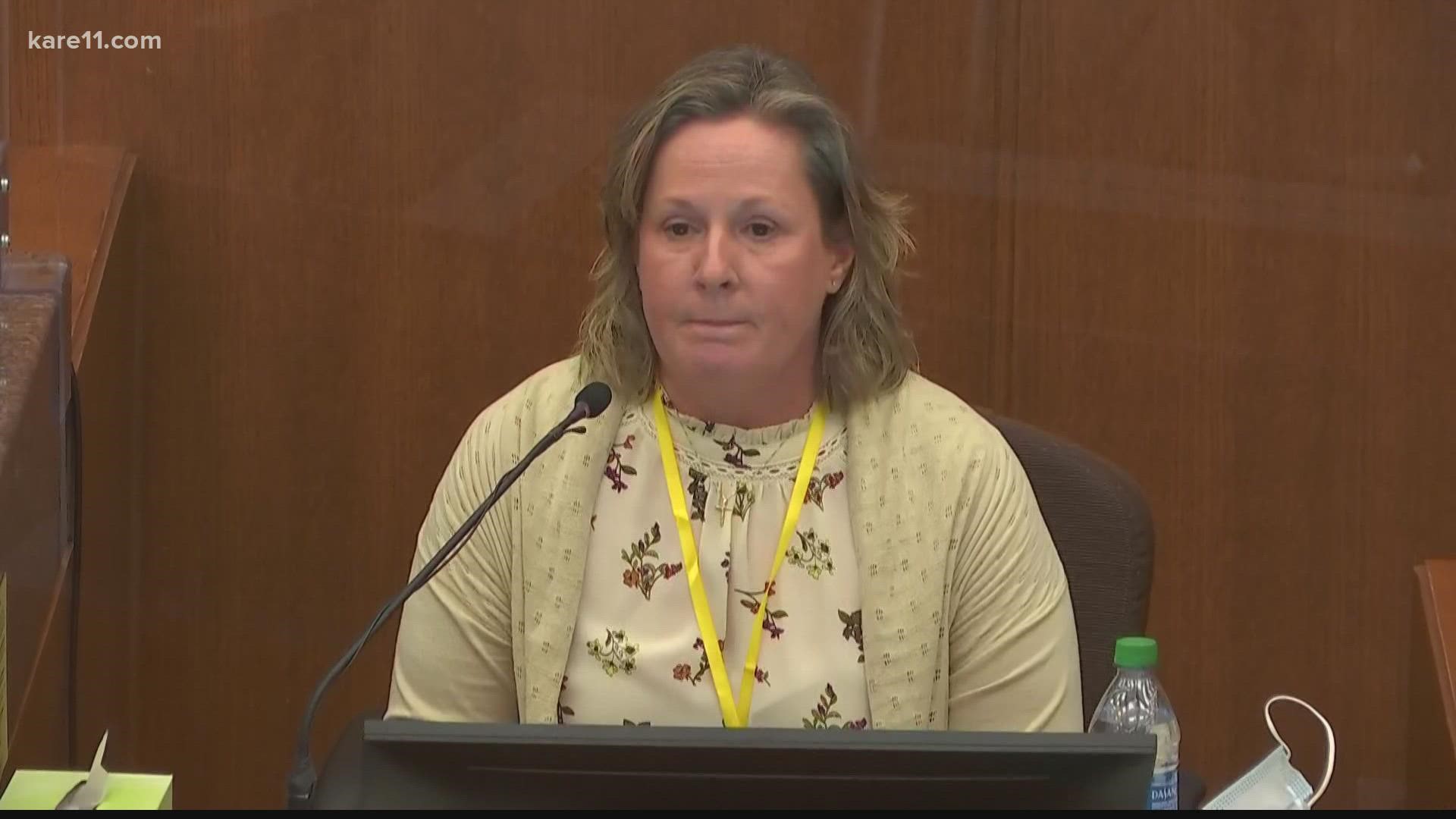MINNEAPOLIS — From the very start, former Brooklyn Center police officer Kim Potter had signaled to the judge that she fully planned to testify in her own defense.
That finally happened Friday, when Potter took the witness stand in perhaps the most pivotal moment of the trial.
"I don't think there's any question," legal expert and defense attorney A.L. Brown said, "that she had to testify, in order to get the storyline that it was a true accident and to demonstrate to the jury that she had remorse."
Brown, who is not involved in the case, said he thinks Potter accomplished that – in part – when questioned by her own defense attorney Earl Gray. However, Brown noted that during cross-examination, Potter said she could not recall multiple statements she made after shooting Daunte Wright, about having "killed a boy" or that she was "going to go to prison."
"When she was talking to her attorneys, she appeared to be quite a bit more cooperative, which is partially natural," Brown said. "But when talking to the state, she had severe memory loss. Some of that was troubling for me. Some of it was unbelievable for me. But the jury will ultimately get to decide."
In this trial, the state must prove two manslaughter charges beyond a reasonable doubt.
In the first-degree manslaughter charge, prosecutors must convince the jury that Potter caused Daunte Wright's death while also committing the crime of "reckless handling or use of a firearm" that involved "such force and violence that death or great bodily harm to any person was reasonably foreseeable." In the second-degree manslaughter charge, the state must show that Potter's conduct involved "culpable negligence" and that she "consciously took a chance of causing death or great bodily harm."
With closing arguments set for Monday, Brown said the state must send the jury into deliberations with a clear message.
"The state, in some ways, had a pre-made narrative. Which is, 'how do you mistake a taser for a gun?' That's what everyone was thinking. And I think the smart move is to play into that," Brown said. "If they can't make that case, then they can't win this case."
Greg Egan, a legal expert and Ramsey County public defender who is also not involved in the case, said he expects the state's closing arguments to focus heavily on Potter's training and the notion that she "should have known better."
But Egan also said that argument only works to a point. He noted that the state presented documents during the trial that showed how Potter was trained on "performing reaction-hand draws or cross-draws to reduce the possibility of accidentally drawing and firing a firearm."
"If that's something they train on, a fear and record of that happening with at least some degree of frequency, in a way that's an acknowledgement that this was or could have been construed as a foreseeable mistake," Egan said, "that it may not be as outlandish as it may appear from the onset. I think that's something the defense should address."
That hasn't been the defense's main focus so far, though, ahead of closing arguments on Monday.
"My prediction is, they'll stay true to what they have said throughout this trial," Egan said, "that a life was in danger, and Potter was justified in using force even if she mistook the form of force."

